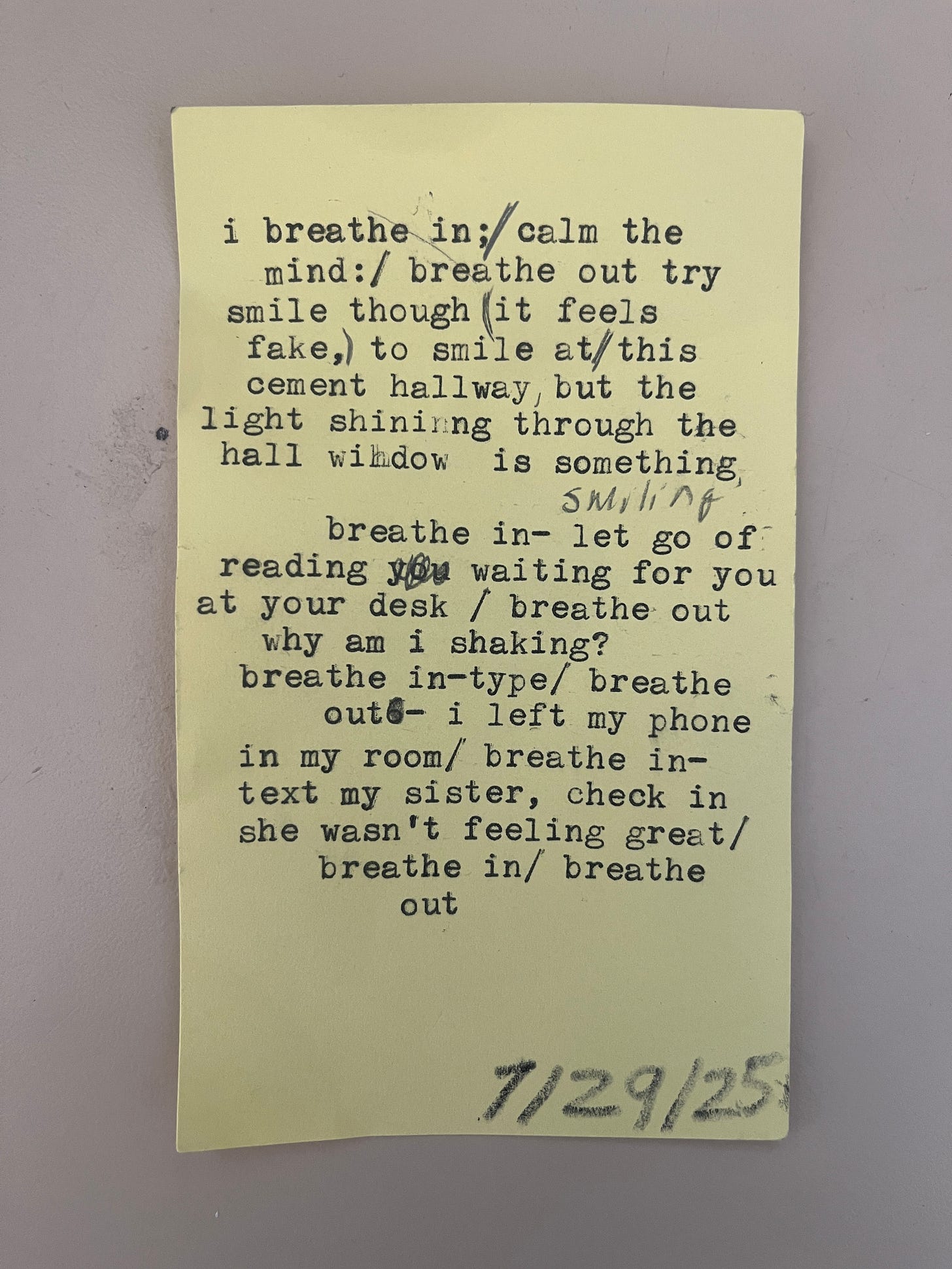Composing for Strangers
My hands are jittery as I lift the hard green cover off the typewriter; my head is full, my thoughts need an escape.
Biweekly on Wednesdays alongside a small group of students from the on - campus literary & arts organization I compose custom typewriter poems for strangers (faculty, students, staff) from across Pace University’s Westchester campus. People walk through the student center entangled in their lives but I sit, typing - decluttering anxieties through first thoughts. Settling into the moment I meet myself, aware of troublesome thoughts as they manifest on paper.

People watch me type and ask in amazement how I can “do that” - write instant poetry. Though there’s no prescriptive answer, my impulse is to say I become a conduit - tapping into a creative channel that makes the intangible, tangible. It’s exciting, and disquieting. While writing a poem about a distanced friend for a student who missed shared conversations and cigarettes I was confident in the poem but nervous about its reception: did I capture the essence of this person’s friendship correctly? Was this unearthed feeling of loneliness and distance accurate? As I handed the poem across the table the joy of recognition, of being seen spreading across the student’s face delighted me.
Before leaving the student remarked (as many others have) that they could never “do that.” It bothers me when people say they couldn’t “do what I do” (write poetry) because I disagree. Though technical skill may be needed to operate a typewriter the essence of what I do is rooted in asking questions and drawing connections. Whenever I am asked to write a poem I consider the stranger the composer willingly answering questions on their chosen topic and myself the transcriber recording these bits and pieces of time and memory into a tangible artifact.
I think people often have a single story about what poetry is; a set thought framework that shows them poetry isn’t meant to be made by them or is meant to high - reaching, literary, stuffy not mundane, spontaneous, or imperfect. I think part of their single story of poetry may be that their day - to - day lives are not poetic when I would argue, they are. I delight in the thought that each poem I write for someone starts to change the story of poetry that person may have.
During one of these tabling sessions someone remarked to me that it seemed like I was participating in the event not because I have to do it but because I genuinely enjoy it. I had been seen. It was difficult to own this genuine enjoyment. I think this enjoyment of a space where I might write, let go, and connect with someone in the process answers a call to be aware, acknowledge the unsteadiness in the mind and work through it - type it out as messy as it might be revelling in the way poetry can helps people becoming visible to themselves and the world.



